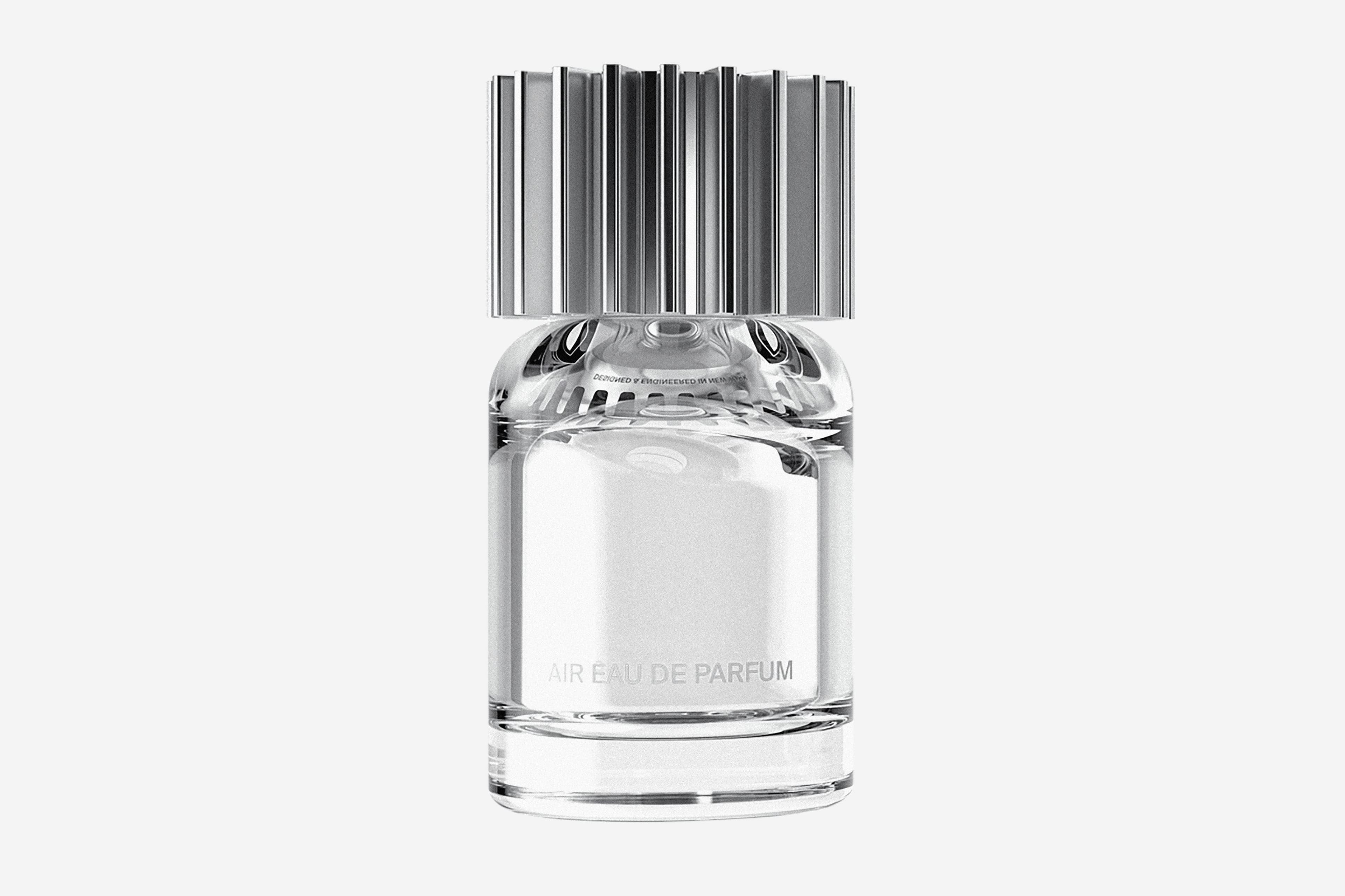
A Scent of Air
Air Company, the New York City-based technology, engineering, and design business, is expanding its range of climate-conscious products with the release of its debut fragrance, Air Eau de Parfum. Implementing the same revolutionary patented technology used to create their vodka and hand sanitizer, the scent is produced by using converted carbon dioxide (an abundant greenhouse gas that contributes to climate change) to create its alcohol base. “The easiest way to think about it is that it mimics photosynthesis,“ explains co-founder Greg Constantine. “We feed captured CO2 and green hydrogen that we make onsite at our Air Innovation Center in Brooklyn into our carbon conversion system. When the CO2 and hydrogen meet, a reaction takes place that converts the two into alcohol and water. From there, we separate the alcohol from the water and use that alcohol (ethanol) as the base formulate for our fragrance.“
Created in collaboration with Brooklyn-based Joya Studio, Air Eau de Parfum contains citrusy top notes of fig leaf and orange peel and middle notes of jasmine, sweetwater, and violet, finishing with tobacco and musk. Inspired by air, water, and sun, the scent pays homage to the same main elements used in Air Company’s technological efforts to combat climate change. In a similar spirit, Air Eau de Parfum is developed with synthetic scents, keeping production localized to the tri-state area and therefore far gentler on the environment than sourcing natural scents globally. “This product has been in our plans since the inception of our company as it is an incredible educational tool for what is possible with our technology,“ says Constantine. “The beauty industry is one of the most significant contributors to greenhouse gas emissions. I wanted to show the ability of our technology across more than one category.“
Air Eau de Parfum is now available for pre-order at AirCompany.com.
As a nonprofit arts and culture publication dedicated to educating, inspiring, and uplifting creatives, Cero Magazine depends on your donations to create stories like these. Please support our work here.






